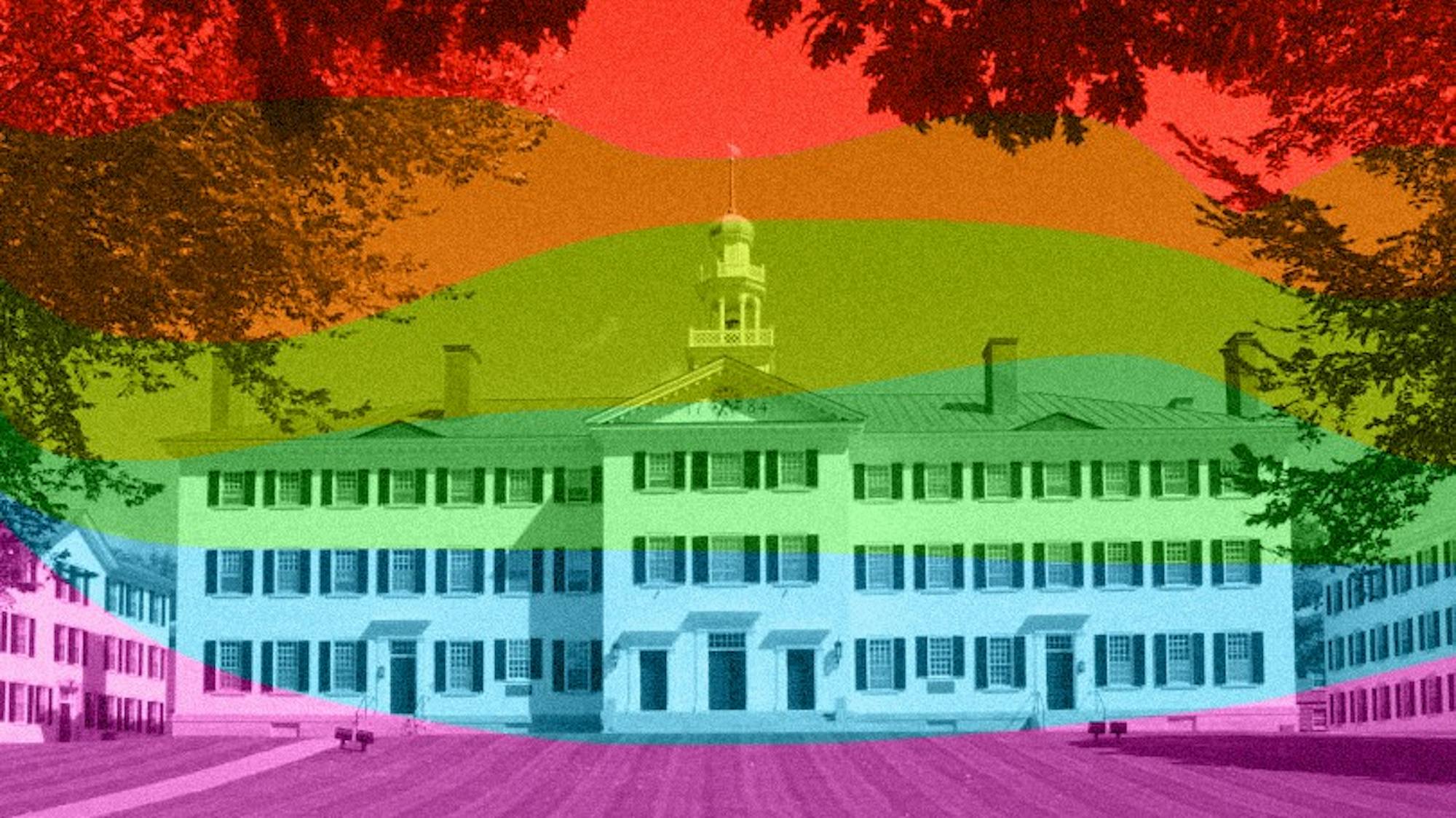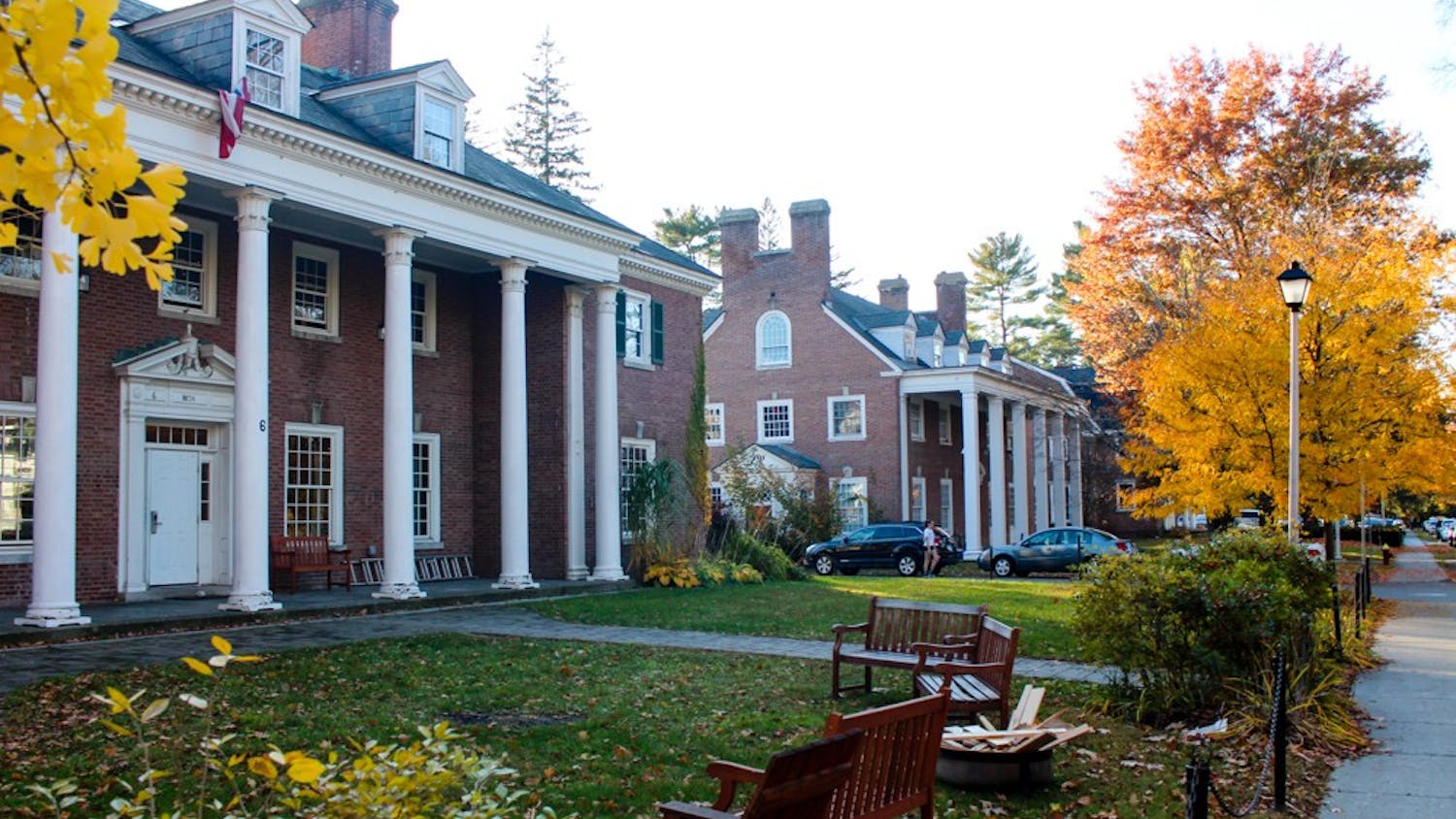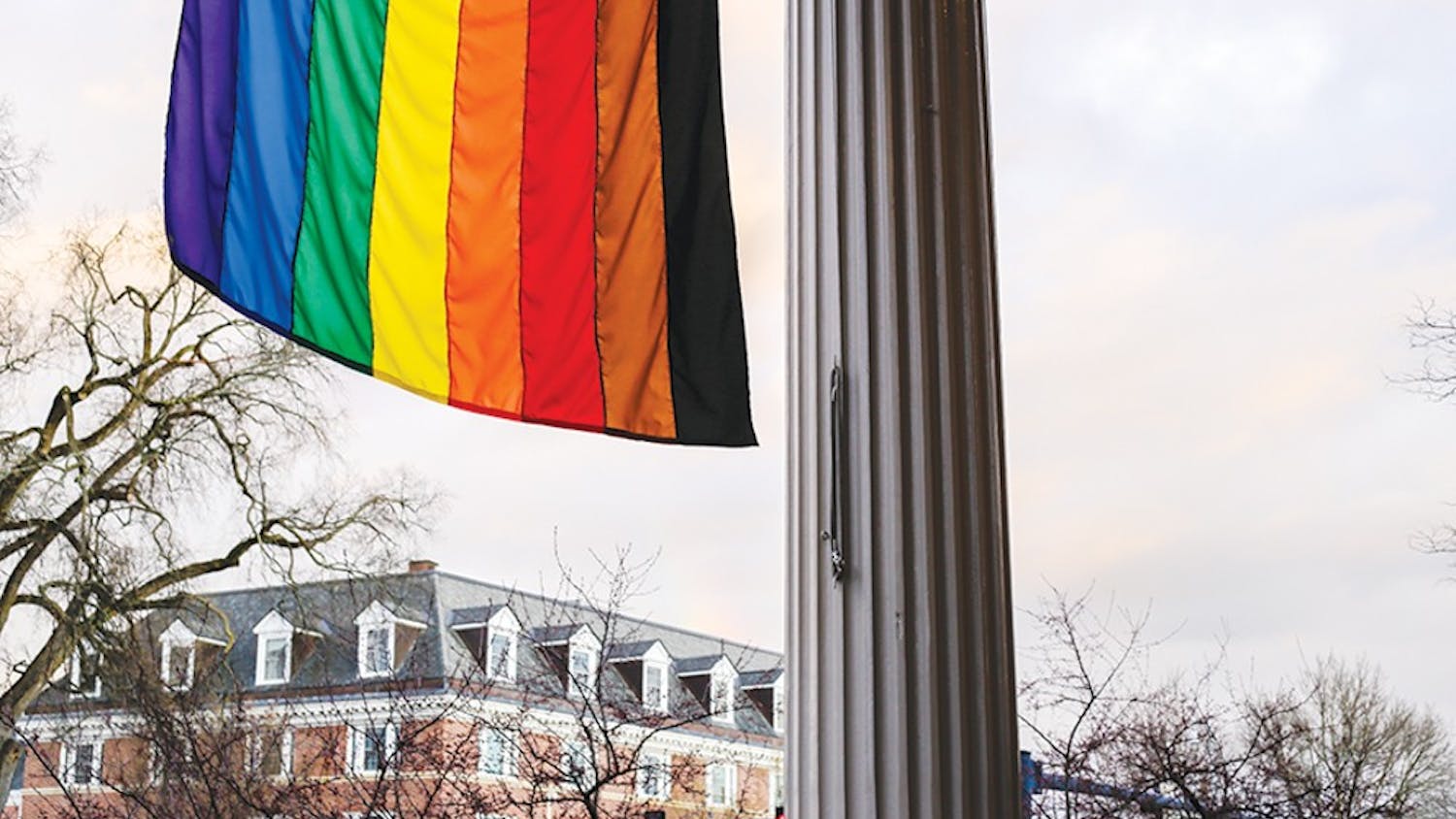This article is featured in the 2020 Freshman special issue.
The beginning of college is always disruptive. Adjusting to a new geographic, social and mental setting is challenging under ideal circumstances, and the circumstances this fall are nowhere close to ideal. Our meals, our classrooms, our dorm rooms and our social spaces are all going to be a bizarre but necessary combination of physically distanced adjustments and digital replacements. For many incoming LGBTQ+ students, their identity will add one more layer of disruption to a fall already full of unknowns.
Although there is a unique and pronounced disruption caused by starting college in a pandemic, many queer students at Dartmouth have already experienced disruption as a result of being LGBTQ+ on campus. Familiar threads of anxiety and relief run through many of the stories I’ve heard from LGBTQ+ peers concerning their entrance into college. I know that both emotions were ever-present for me during my freshman fall. As I was trying to figure out my suddenly confusing sexuality, having the opportunity to be whoever I wanted –– to all of these people I’d never met –– was simultaneously the most terrifying and liberating feeling in the world.
Kai Frey ’22, who identifies as non-binary and queer, shared some of the mixed feelings that accompanied their freshman fall.
“Going into my freshman fall I was nervous about using my name and correcting people on my pronouns,” Frey said. “I was really lucky to have someone on my Trips who would correct my other trippees — that was great, and I really appreciated her. Finding people who can be your confidence when you don’t have it — especially when you’re a freshman — can be really important and really helpful.”
Needless to say, Trips isn’t going to happen the same way this year. This is an undoubtedly sad disruption of the traditional Dartmouth welcome, but it’s important to acknowledge that, while the high from Trips is wonderful, it doesn’t last all year.
“After Trips it’s difficult because unless you’re in a [Women's, Gender & Sexuality Studies] class or a queer space, it can be very iffy if pronouns are going to come up or whether you have to be the first person to say it,” Frey continued. “But, coming from a more conservative public high school, it was also nice that those things were occurring, even if they were iffy, just to have a space that was open and shown to be welcoming.”
Although Dartmouth’s approach to gender and sexuality is imperfect, for Frey and many other students, a little bit of effort goes a long way.
“At my high school we weren’t allowed to put posters up that had anything to do with LGBTQ+ people: no pride flags, no nothing in June,” Frey said. “It was a really nice disruption to come to a place where there were pride flags in random places, where the Collis pasta line had stuff about queer people — and that wasn’t just in June, it was occurring all year.”
Olivia Goodwin ’21, who identifies as non-binary and gay, also experienced a sense of positive disruption during their arrival at Dartmouth.
“For me [college] was a disruption for the better, because I was not at home any more and under the immediate influences of my family life that I had grown up with forever,” Goodwin said.
“My freshman year of college was when I really took the personal mental time to think about gender and contemplate that I might not be cis, which had occurred to me in my senior year of high school.”
For many LGBTQ+ students, going away to college is a way of escaping families or hometowns that have been unaccepting of their identities. Jessica Chiriboga ’24, who identifies as lesbian, shared her excitement to find a more robust queer community at Dartmouth.
“In April, I was kinda nervous because you live in a community that’s not the most accepting, and you’re like ‘I just need to get out of here,’” she said. “Being able to go to a new place and find people who had similar interests to me and also shared an identity was super important to me. I was yearning to get out of [Glendora, California] and get onto campus.”
When the ’24s arrive, there will be LGBTQ+ and gender-inclusive spaces on campus that are eager to welcome them. Even though this welcome will be through Zoom or with people spaced six feet apart, there are a number of different options available — from LGBTQ+ student organizations, like Within, to residential communities like the Triangle House Living Learning Community and gender-inclusive Greek spaces.
For Frey, finding an inclusive community started with a love for nerdy board games.
“I first got introduced to Phi Tau [a gender-inclusive Greek house] through the Creative Board Games Club,” they said. “By spring term, I was pretty good friends with a lot of the members. It was a pretty natural movement from being friends with a couple of them, to being introduced to the rest of the house, to eventually becoming a member of the house.”
Goodwin shared that for them, the Sustainability Office and the a cappella group Music in Color were both spaces that felt safe and inclusive, even though those organizations aren’t explicitly LGBTQ+ aligned. Goodwin was also on the 2020 Pride committee, helped lead Within and lived in Triangle House for three terms. For Goodwin, even some of the queer-friendly spaces they weren’t super involved in helped make Dartmouth feel more inclusive.
“Even if I didn’t become a part of those groups or best friends with those people, I had people around me who were out, who I knew I could talk to,” Goodwin said. “It gives you this jumping point because you know that this space is safe and the people in this space are OK to talk to.”
Goodwin added that through Triangle House, they had access to adults they could talk to more often.
“[Dia Draper and Jen Jones] are the house supervisors, and they’re live-in, which gave me some adults I knew who were queer to talk to about that kind of thing if I ever wanted to,” they said.
Unfortunately, Dartmouth’s communication surrounding many of these resources has been lacking for the ’24s. Chiriboga said that Triangle House was accidentally left off of the freshman housing form, and although the mistake was later corrected, students who were unaware of the change may have missed an opportunity to apply for inclusive housing in the LLC.
Additionally, Chiriboga shared that many ’24s wish Dartmouth had a central webpage listing the various resources available to LGBTQ+ students. As it stands there are plenty of resources available, but they are split up between the OPAL website, Orgsync and various other webpages. For instance, you can find a map of gender-inclusive bathrooms in one corner of the OPAL directory, but the contact info for Within is on a completely separate website. For incoming students who may not be familiar with all of these names, having a central, easy-to-navigate directory for LGBTQ+ resources would be greatly beneficial.
However, that’s not to say that the ’24s are letting themselves be left behind by poor communication or disorganization. According to Chiriboga, many queer ’24s are active in a large GroupMe that was the result of Chiriboga and a fellow ’24 “biting the bullet” and sending out a message hailing LGBTQ+ ’24s in their class Facebook group.
In their group’s nightly Zoom calls, these ’24s have formed friendships and created a sense of community from afar. Nonetheless, anxieties about the year ahead are still running high for some. The prospect of taking online classes from home during the winter term is especially daunting for students without accepting homes.
“Several of our classmates are facing unaccepting families, where they either haven’t come out yet or they have come out and their families aren’t supportive, so it’s super tough for them,” Chiriboga said. “When you talk about disruption, it’s disruption of social ties and then disruption of how you feel safe in your learning environment, which could be your house.”
Amid all of this very justifiable anxiety, the upperclassmen I interviewed had a few words of advice.
From Frey:
“If you’re in need of queer people to know and don’t feel comfortable going to Q [another LGBTQ+ group] or Within, go to Alpha Theta or Phi Tau events!”
“Send fritzes — send me a fritz!”
From Goodwin:
“Remember that this is not the first time you have faced uncertainty. We face uncertainty all the time, every day, even if we don’t realize it.”
“Don’t be afraid to communicate. If you feel embarrassed about it, you’re new and you’re not expected to know things. Anyone who acts like you should know things — that’s on them.”
“As far as fitting in, I imagine you’ll see a lot of people over Zoom instead of in person, so utilize the people who are in your immediate space, but don’t forget that there are also people who are part of the broader Dartmouth community who are not on campus with you, who you might meet in the future.”
And finally, from me:
With all those hours sitting alone in a dorm room, I imagine there will be time to do some self-discovery. Don’t be afraid to reinvent yourself a little bit — you might just like what you find! I know that what I found is the reason I’m writing this article.
Caris is a '23 from Long Beach, CA and is majoring in religion modified with art history. When not editing stories for the Mirror, you can find her playing club soccer, snowboarding at the Skiway or sipping coffee in Sherman Art Library. After college, she plans on attending graduate school in religion.




